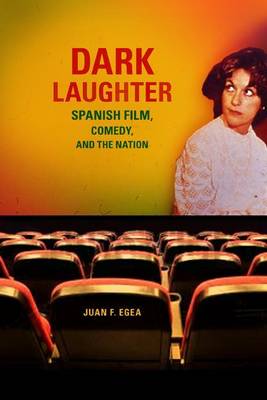Wisconsin Film Studies
1 total work
In Dark Laughter, Juan F. Egea provides a remarkable in-depth analysis of the dark comedy film genre in Spain, as well as a provocative critical engagement with the idea of national cinema, the visual dimension of cultural specificity, and the ethics of dark humour.
Egea begins his analysis with General Franco's dictatorship in the 1960s-a regime that opened the country to new economic forces while maintaining its repressive nature-exploring key works by Luis Garcia Berlanga, Marco Ferreri, Fernando Fernan-Gomez, and Luis Bunuel. Dark Laughter then moves to the first films of Pedro Almodovar in the early 1980s during the Spanish political transition to democracy before examining Alex de la Iglesia and the new dark comedies of the 1990s. Analysing this younger generation of filmmakers, Egea traces dark comedy to Spain's displays of ultramodernity such as the Universal Exposition in Seville and the Barcelona Olympic Games.
At its core, Dark Laughter is a substantial inquiry into the epistemology of comedy, the intricacies of visual modernity, and the relationship between cinema and a wider framework of representational practices.
Egea begins his analysis with General Franco's dictatorship in the 1960s-a regime that opened the country to new economic forces while maintaining its repressive nature-exploring key works by Luis Garcia Berlanga, Marco Ferreri, Fernando Fernan-Gomez, and Luis Bunuel. Dark Laughter then moves to the first films of Pedro Almodovar in the early 1980s during the Spanish political transition to democracy before examining Alex de la Iglesia and the new dark comedies of the 1990s. Analysing this younger generation of filmmakers, Egea traces dark comedy to Spain's displays of ultramodernity such as the Universal Exposition in Seville and the Barcelona Olympic Games.
At its core, Dark Laughter is a substantial inquiry into the epistemology of comedy, the intricacies of visual modernity, and the relationship between cinema and a wider framework of representational practices.
